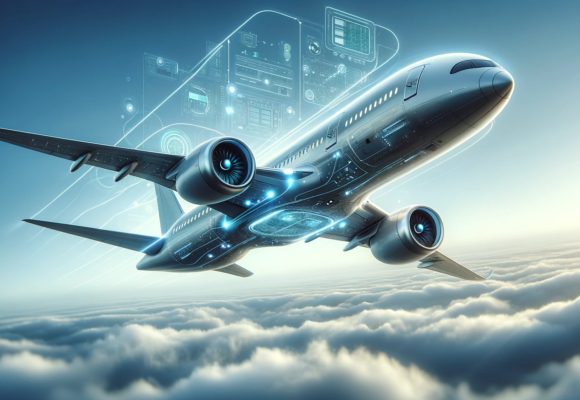Over the next decade, artificial intelligence (AI) is poised to significantly transform the airline industry, offering unparalleled improvements in efficiency, safety, customer service, and sustainability. By leveraging AI technologies, airlines can not only enhance operational performance but also redefine the passenger experience, making air travel more seamless and personalized. Here is an example summary of the anticipated advancements and their implications:
Enhanced Safety and Maintenance
AI will play a critical role in improving the safety and maintenance of aircraft. Predictive maintenance, powered by AI algorithms, will analyze data from aircraft sensors in real time to predict potential failures before they occur, significantly reducing the risk of mechanical issues and improving aircraft reliability. This proactive approach to maintenance can lead to fewer delays and cancellations, directly impacting operational efficiency and safety.
Optimized Flight Operations
AI technologies will optimize flight operations by improving route planning and fuel efficiency. By analyzing historical data and real-time conditions, such as weather and air traffic, AI systems can suggest the most efficient flight paths, reducing fuel consumption and minimizing environmental impact. Additionally, AI can enhance air traffic management, leading to more precise takeoff and landing scheduling, which will alleviate congestion at airports and in the airspace.
Personalized Passenger Experience
The next decade will see a significant shift towards a more personalized and convenient passenger experience, driven by AI. From the moment of booking, AI will offer customized travel recommendations and dynamic pricing strategies based on individual passenger preferences and behaviors. In-flight, AI-driven systems will provide personalized entertainment options, meal choices, and comfort settings, enhancing the overall travel experience.
Automated Customer Service
AI chatbots and virtual assistants will become more sophisticated, handling a wide range of customer service inquiries with speed and accuracy. These AI systems can offer 24/7 assistance, reducing wait times and improving customer satisfaction. They will be capable of managing bookings, providing real-time travel updates, and resolving issues, thereby streamlining the customer service process.
Efficient Baggage Handling
AI will revolutionize baggage handling through automation and tracking technologies, reducing the incidence of lost or delayed luggage. Smart baggage systems, equipped with AI, can accurately sort and route luggage to the correct flight, as well as provide passengers with real-time tracking information. This not only improves operational efficiency but also enhances passenger trust and satisfaction.
Sustainability Initiatives
AI will be instrumental in advancing the airline industry’s sustainability goals. Beyond optimizing flight routes for fuel efficiency, AI can assist in the development of more sustainable practices, such as reducing waste and improving recycling programs on board. AI analysis can also support investment decisions in alternative fuels and more environmentally friendly aircraft designs.
Workforce Transformation
The integration of AI in the airline industry will necessitate a transformation of the workforce. While some jobs may be automated, new roles will emerge, focusing on the oversight of AI systems, data analysis, and enhancing customer experiences. Training and upskilling of employees will be crucial to adapt to this technological evolution.
Challenges and Ethical Considerations
Despite the many benefits, the adoption of AI in the airline industry presents challenges, including data privacy concerns, the potential for job displacement, and the need for robust cybersecurity measures to protect against AI vulnerabilities. Ethical considerations around decision-making processes, particularly in safety-critical areas, will require careful oversight and clear guidelines.
Conclusion
In conclusion, AI’s impact on the airline industry over the next decade promises to be transformative, driving improvements in operational efficiency, passenger experience, and environmental sustainability. As airlines navigate the integration of these technologies, they will need to balance innovation with ethical considerations and workforce transitions. The successful implementation of AI could redefine the future of air travel, making it safer, more efficient, and more enjoyable for passengers worldwide.


 12 Feb 2024
12 Feb 2024
 Posted by Watchdog Ent.
Posted by Watchdog Ent.  0 Comment
0 Comment 









